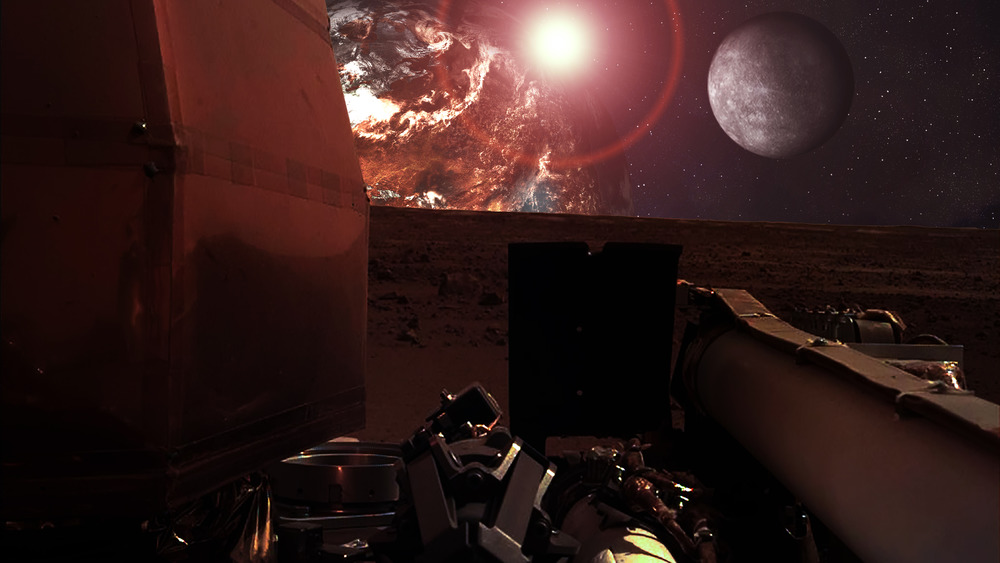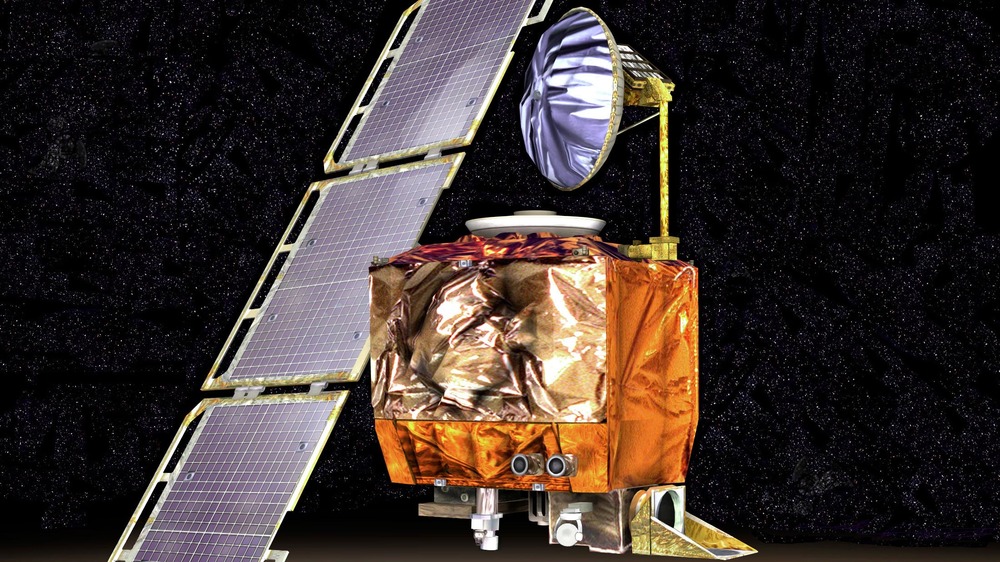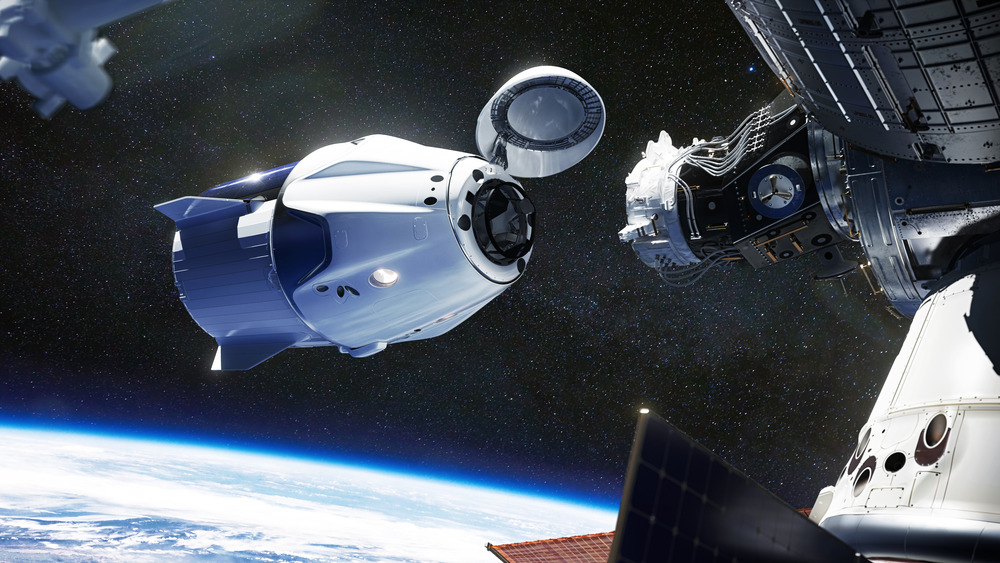Expensive Space Gadgets That Failed Miserably
Launched in May 2018, NASA's InSight lander inspired hope in the administration and anyone interested in learning more about Mars. That hope was doubled in November of that year when it actually made a successful landing on the red planet, rather than crashing into the surface at hundreds of miles an hour, as we've seen happen in the past. However, NASA had to release some unfortunate news in January 2021, when it reported that the lander's heat probe, which it calls the "mole," had called it quits after almost two years of doing its darnedest to dig down into the Martian surface in order to take temperature readings. The mole worked like a spike, trying to stab its way down into the ground, but the clumpy nature of the soil rendered it unable to get enough friction to hammer down to its expected depth. It was supposed to drill down to a depth of at least 3 meters (10 feet), but the mole only made it about 2 or 3 centimeters (approximately 1 inch).
But although the heat probe was a dud, at least the entire mission hasn't been for naught. The German engineers who built the mole say that the failure taught them a lot about the ground on Mars, and they'll be able to use that insight (pun intended) on future missions. But in honor of the mole's lack of success, let's take a look at other epically expensive flops in the history of space exploration.
Despite its good track record, NASA has had some big-time space exploration bombs
There's a reason we compare the difficulty of other intellectual pursuits to rocket science. It's hard. So it's no surprise that NASA experienced some pretty epic fails in its early years. Astronomy notes the administration's first robotic missions to the moon, a series of probes named Ranger. The first six probes in the Ranger series either failed during launch or experienced fatal malfunctions on their way to the moon. But NASA finally figured it all out, and the photos taken by the Ranger probes ended up helping them put men on the lunar surface in 1969. According to NASA, the total cost for all nine missions was $170 million.
NASA's Mariner missions had a 70 percent success rate. These robotic probes were sent into space to survey our interplanetary neighbors Mercury, Venus, and Mars. But Mariner 1 had some unexplained trouble just minutes after launch and was intentionally destroyed. Mariner 3 made it out into space, but its solar panels failed to deploy, leaving it a lifeless husk floating among the stars. NASA calculated the total cost of the 10 Mariner missions to be around $554 million.
The real doozy of a costly failure was when NASA engineers failed to account for a simple unit conversion and lost the super expensive Mars Climate Orbiter in 1999. That brain fart cost the administration almost half a billion dollars in one fell swoop.
SpaceX's rocky road to the stars
The private space exploration company SpaceX has achieved quite a few firsts in the two decades since its founding. It was the first private company to put a liquid-propellant rocket into orbit, the first company to bring an orbiting spacecraft back to Earth, and the first private company to take astronauts to the ISS. However, just like in NASA's early days, SpaceX also had a bumpy ride on its way to success. According to Timeline, SpaceX's very first launch in 2006 failed due to a rusty nut. The rocket exploded a little more than half a minute after liftoff. The company's second launch in 2007 failed to make it into orbit. A SpaceX rocket launched the next year had the ashes of actor James Doohan, who played Scotty on Star Trek, but failed to ferry them into space as planned when the rocket pieces smashed together after separating and the whole apparatus fell into the sea.
These were followed by a vaporized rocket in 2015 — on founder Elon Musk's birthday, no less! But the really big loss was in September 2016, when a SpaceX rocket exploded in a monstrous fireball before even launching, while fueling up. The Orlando Sentinel reported that the snafu cost the company a whopping $200 million. Still, Musk likely remains undeterred. "When something is important enough, you do it even if the odds are not in your favor," he once said to CBS News.


